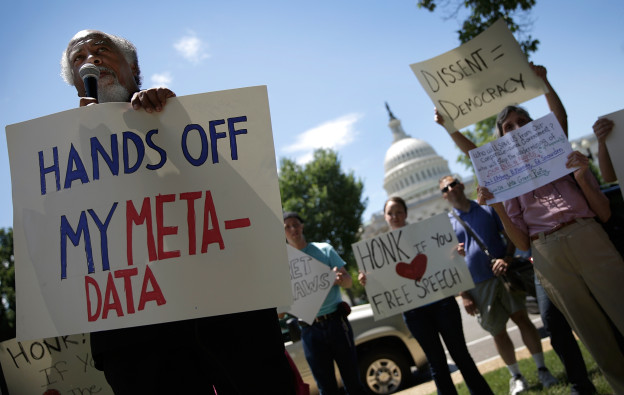The National Security Agency (NSA) has been in the news recently and almost everyone that uses the Internet should be concerned about what many consider a mass information gathering effort on the part of the government. This heightened concern follows Edward Snowden’s controversial leak of secret NSA documents.
The documents show that the organization is collecting information on an unknown number of people. The documents indicated that the agency was collecting what is called telephony ‘metadata’ from one of Verizon’s companies. Data collected included call records and was done on a daily basis, over an extended period.
This NSA surveillance made many angry when it was first leaked and still excites the same feeling in many today, especially since it was found that the information collected also extends to Google searches, posts on Facebook, and on other social media sites. While the government contends that the ‘information gathering’ is in the country’s best interest and is constitutional, many advocates of freedom of the Internet believe that it is a gross injustice and an impingement of their right to privacy.
Both Google and Facebook have experienced a rapid growth in their customer base from inception until now, as such, any surveillance of their customers, along with other Internet and telephone companies, means that millions of Americans are affected. This growth also offers the answer for the question of, why the websites and companies are under surveillance. It is evident that it gives the government access to a wide range of information, from a large portion of the country.
The NSA Internet surveillance program, with its code name PRISM, has been described as ‘Warrantless wiretapping’. However, under the Foreign Intelligence Surveillance Act, the agency requesting the surveillance must submit a warrant request. The Foreign Intelligence Surveillance Court (FISA Court) must also approve that request, before any information of the sort can be gathered. However, based on the method of appointing judges and the fact that almost all of the requests are granted, it is understandable why the belief abounds that the court is only a mockery.
What kind of information is NSA collecting from Google and Facebook?
The agency collects Internet communication data that is backlogged by Internet companies such as Google and Facebook. This NSA data mining also includes email records.
Why is this necessary? You may ask.
The information is supposed to be used to identify any terrorist threats, that is, any plans to commit terrorist crimes. This is the age of technology and it is possible that such plans will be made over the Internet and through telephone calls. The FISA’s understanding of the USA Patriot Act makes the mass surveillance legal, despite the ripple effects.
The USA Patriot Act was passed in 2001 under the presidency of George W. Bush. Many may not be aware that ‘USA Patriot ACT’ is an acronym, which represents the title of the act, Uniting and Strengthening America by Providing Appropriate tools Required to Intercept and Obstruct Terrorism. It is apparent that the type of surveillance taking place is considered appropriate.
The NSA surveillance controversy will possibly continue for many years without much consent from either party, those who disagree and those who defend the method of information gathering. However, how can you protect yourself from this invasion of privacy? There has been an increase in websites offering ways to protect the information you share on the WEB. They claim that privacy is possible with software that can encrypt or hide your information. The data is scrambled using certain mathematical operations. There will certainly be an increase in such offers of protection, however, you must be wary as these software may themselves be viruses.
With recent changes in privacy settings for some websites, many Internet users are concerned that their private information is no longer private. Internet searches for topics, phrases and companies related to the NSA surveillance, are on the increase, as many are since seeking to equip themselves with information about what data the government can legally collect. You must ensure that you do your own research on this method of information gathering. You should ensure that you also understand the acts to which the surveillance programs are subject, as both your Internet communications and phone records are susceptible to scrutiny.
